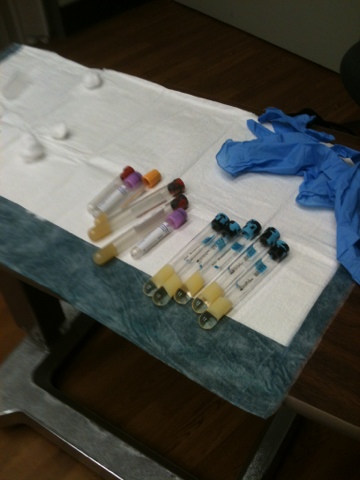Chasing heroin On PBS
I knew this topic would interest you all so I shot some
questions to one of the producers Marcela Gaviria.
1. How does this program differ from other shows on the
topic?
There is some terrific reporting on the epidemic. I think in two hours we cover not just the
origins of the epidemic, we report on why the epidemic has not been abated and
we examine what needs to be changed in order to contain the worst drug epidemic
in our history. It's all told through
intimate and deeply revelatory stories of three addicts, a suburban mom, a 21
year old female from a middle class background, a musician who is now homeless.
2. With so many different opinions on what is needed, was
there anything that stood out as solutions or themes?
The Obama administration is reviewing the restrictions on
prescribing for medication assisted treatment, and from the experts we spoke
with, it seems relaxing those rules could be a good start. We could also
require insurance plans to include coverage for more than 30 days of inpatient
treatment. That’s clearly not enough time to get someone clean.
3. How did you recruit users?
I spent a lot of time interviewing possible participants,
listening to their life stories.
Sometimes I met them at drug court.
Others I met through the LEAD program in Seattle. I was introduced to many people in the
course of making this film. I settled
for participants that really touched me with their candidness, intelligence and
ultimately their struggle.
4. How did you recruit family members?
That was a lot tougher.
Once I had settled on my participants, I wanted to talk to their
extended family about how addiction had impacted their lives, but many didn't
want to participate. The stigma of
addiction is still so great. I was very
pleased that I managed to include Kristina's father in this film. The portrait of a father struggling through
his daughter's addiction was very powerful to witness.
5. What do you feel are the take away messages from the
program?
I think the big takeaway is that this epidemic is not unlike
the AIDS epidemic of the 1980s. Back then, we rallied to come up with
solutions. We aren’t doing enough now.
Access to treatment is inadequate. Services stink. Relapse rates are way
too high. There aren’t enough studies to tell us what works and what doesn’t
work. Over half a million people have died from opiate overdoses in the last 15
years. We clearly can do better.


I watched this last night and wondered if you did too. How did you feel about it? So far, my pill addiction has been going on for about 5-6 years and so far, it's stayed there, but I think about moving on to heroin sometimes. Pathetic.
ReplyDeleteI didn't watch it last night. I am going to watch it on replay. I don't watch shows about drugs or violence before bed. It gives me bad dreams.
DeleteI tried to watch it but it triggered cravings and I couldn't pay attention and had to leave the room.
ReplyDeletesorry to hear that.
Deletethank you for your questions to the producer, Tracey. I saw the show and had similar questions. It was quite an education for someone ignorant about treatment options. I heard your interview on Fresh Air today - thank you so much for what you do. And, hang in there with the depression and anxiety. I know well how those can bring your life to a pretty useless place without any help from drugs. Dealing with both is quite a triumph. You are right about connection.
ReplyDeletethanks for listening
Delete